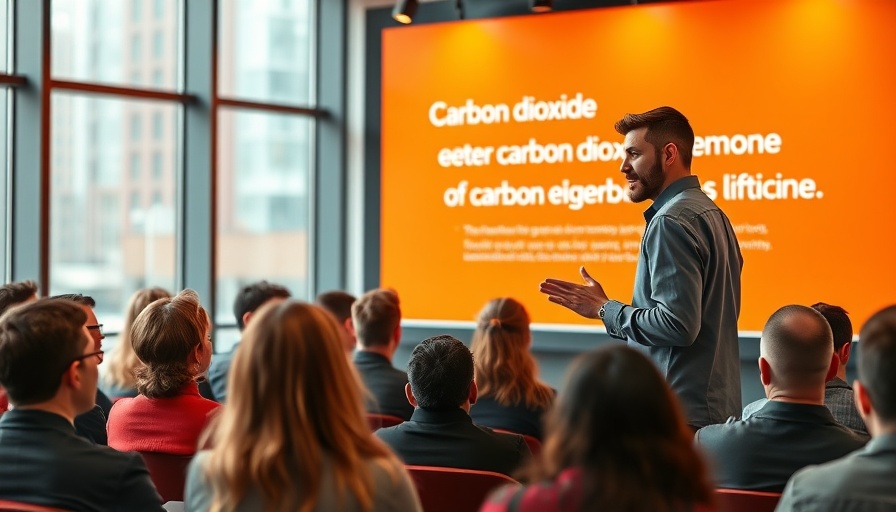
A New Vision for Thailand: Accelerating Towards 2050 Net Zero Target
In a decisive move that could redefine its environmental policies, Thailand is contemplating the advancement of its net zero emissions target from 2065 to 2050. This ambitious plan is part of the country's third nationally determined contribution (NDC), set to be delivered to the United Nations (UN) climate body by September 2025. The proposed shift aims to cut greenhouse gas emissions by 60% based on 2019 levels by 2035, reflecting an urgent response to the escalating climate crisis and a commitment to align with the Paris Agreement’s goal to limit global warming to 1.5°C.
Strengthening Climate Resilience: A Collective Effort
Pavich Kesavawong, the deputy director-general of Thailand’s Department of Climate Change and Environment (DCCE), outlined plans that involve significant decarbonization measures across various sectors, including energy, transportation, waste management, and agriculture. These sectors are crucial to Thailand’s greenhouse gas emissions, and their transformation is essential for achieving sustainability and compliance with international climate agreements. Currently, the government is awaiting a new power development plan from the energy ministry, which will guide the nation’s decarbonization trajectory.
Comparative Analysis: Regional Peers and Global Standards
If Thailand finalizes its new target, it will stand alongside regional peers such as Malaysia and Vietnam, which have also committed to more aggressive climate goals. This collective movement demonstrates a regional shift away from the previous business-as-usual scenario, emphasizing the urgent nature of addressing climate change. For Thailand, this will mark the first absolute emissions reduction target, moving beyond its past, deemed “critically insufficient” by non-profit Climate Action Tracker (CAT).
Understanding the Impact of Climate Ambitions
The shift in Thailand's climate policy underscores the importance of strong government initiatives in protecting natural resources. The country’s earlier NDC targeted a mere 30% reduction in emissions by 2030—far from the necessary levels to be compatible with limiting warming below 2°C. Although the conditional target to raise that to 40% showcased greater ambition, it was indicative of the need for technological and financial support. Such goals reflect the realities faced by developing nations, where progress is often hampered by resource limitations.
Innovative Solutions: Beyond Policy to Practicality
As part of its forward-looking strategy, Thailand is also developing guidelines for generating carbon credits, leveraging nature-based solutions to meet climate targets. For example, eco-friendly rice cultivation aims to lower emissions while promoting sustainable agriculture. This kind of innovative thinking is paramount for mitigating climate change and fostering a circular economy.
Charting a Sustainable Future
The global context of climate action has become even more pronounced as the UN extended the deadline for nations to submit their updated NDCs, following the 95% of countries that missed the initial submission date. This delay highlights the complexity and urgency of global climate negotiations. As of now, only 28 countries have presented their new targets, underscoring the necessity for Thailand to step up and deliver on its commitments.
The Path Forward: What Thailand’s Action Means for Us
Thailand's commitment not only resonates on a national level but serves as a beacon of hope for others grappling with legislative inertia around climate action. What can other nations learn from Thailand’s strategy? It's clear that setting concrete, ambitious targets can inspire a shift towards more sustainable practices and investments. As consumers, one can support these initiatives by advocating for eco-friendly products, renewable energy sources, and sustainable living practices.
The journey towards a sustainable future necessitates collective effort and informed action. By understanding and engaging with local sustainability initiatives, such as community gardens or clean energy projects, individuals can contribute to the broader goals of environmental conservation and climate action.
As discussions around environmental policies continue, now is the time to embrace practices that contribute to a zero-waste society and a greener planet. With the right commitment and support, the 2050 target can move from aspiration to reality, fostering a healthier and more sustainable world for future generations.
 Add Row
Add Row  Add
Add 



Write A Comment